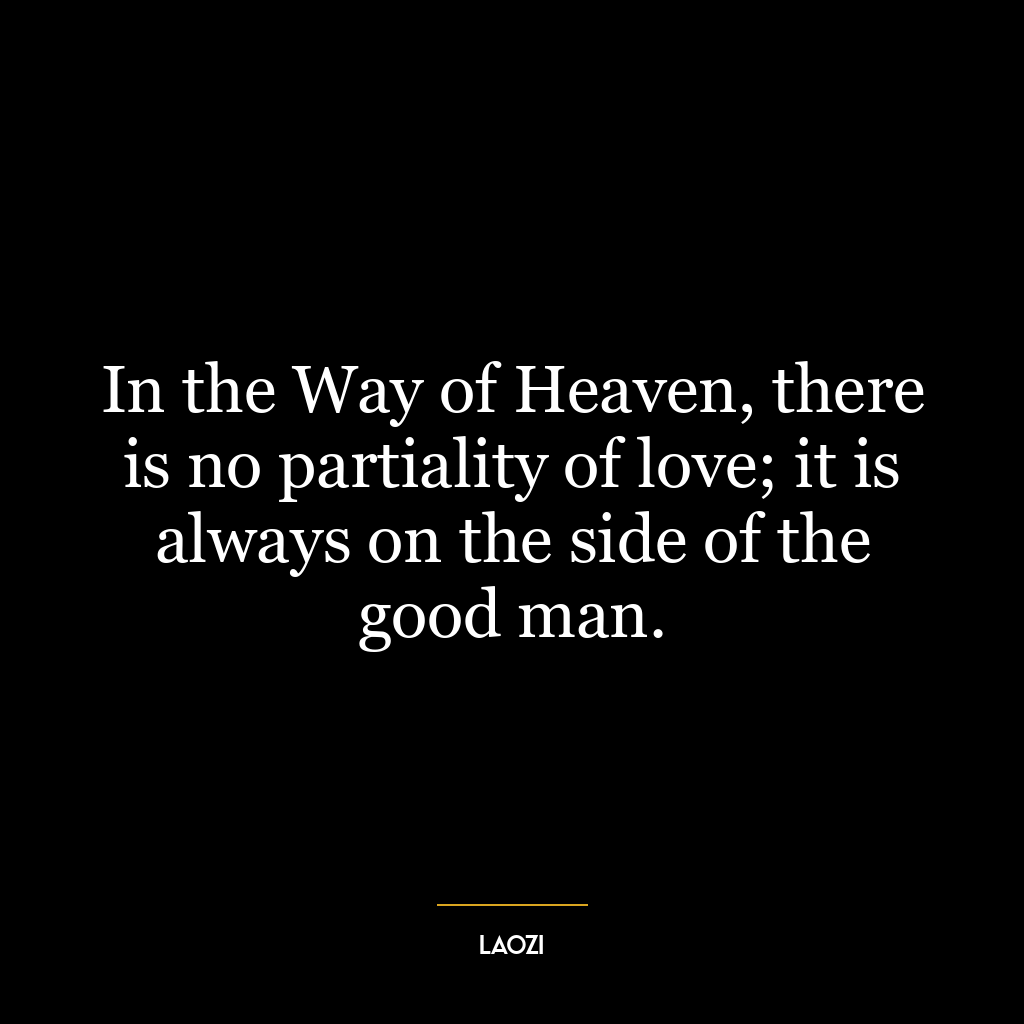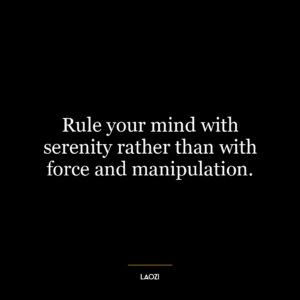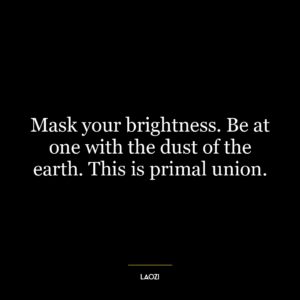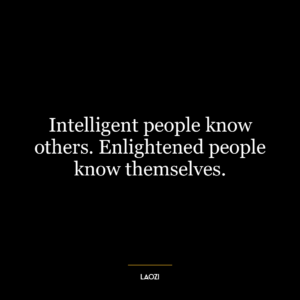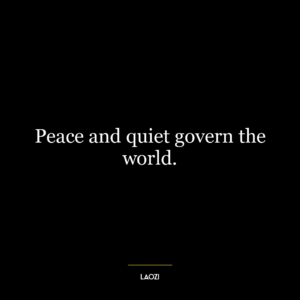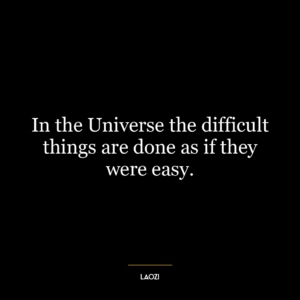In the Way of Heaven, there is no partiality of love; it is always on the side of the good man.
This quote from Laozi essentially suggests that the universal laws or the ‘Way of Heaven’ do not show favoritism or bias. They are always in favor of the individual who is virtuous, moral, and good. The term ‘good man’ here is not gender-specific; it symbolizes any individual who is righteous and virtuous.
The phrase ‘no partiality of love’ implies that the universe or the ‘Way of Heaven’ does not discriminate or show preferential treatment. It does not favor the rich over the poor, the powerful over the weak, or one race over another. Instead, it supports and favors the individual who is morally upright, regardless of their social status, wealth, power, or race.
Applying this concept to today’s world, it could be interpreted as a call to uphold and practice moral and ethical virtues in all aspects of life, whether it’s personal, social, or professional. It’s a reminder that irrespective of one’s position or status, what ultimately matters is their character, actions, and behavior.
In terms of personal development, this idea can serve as a guiding principle. It encourages individuals to strive for moral and ethical excellence, to be honest, kind, compassionate, and just. It suggests that by being a ‘good’ person, one aligns themselves with the ‘Way of Heaven’ and thus, is likely to receive its favor and support.
In a world that often values material success and power, this quote reminds us that true success lies in being morally upright and virtuous. It’s a call to focus on improving our character, on being good human beings, and on doing good to others, as that’s what the ‘Way of Heaven’ or the universe truly values and supports.

